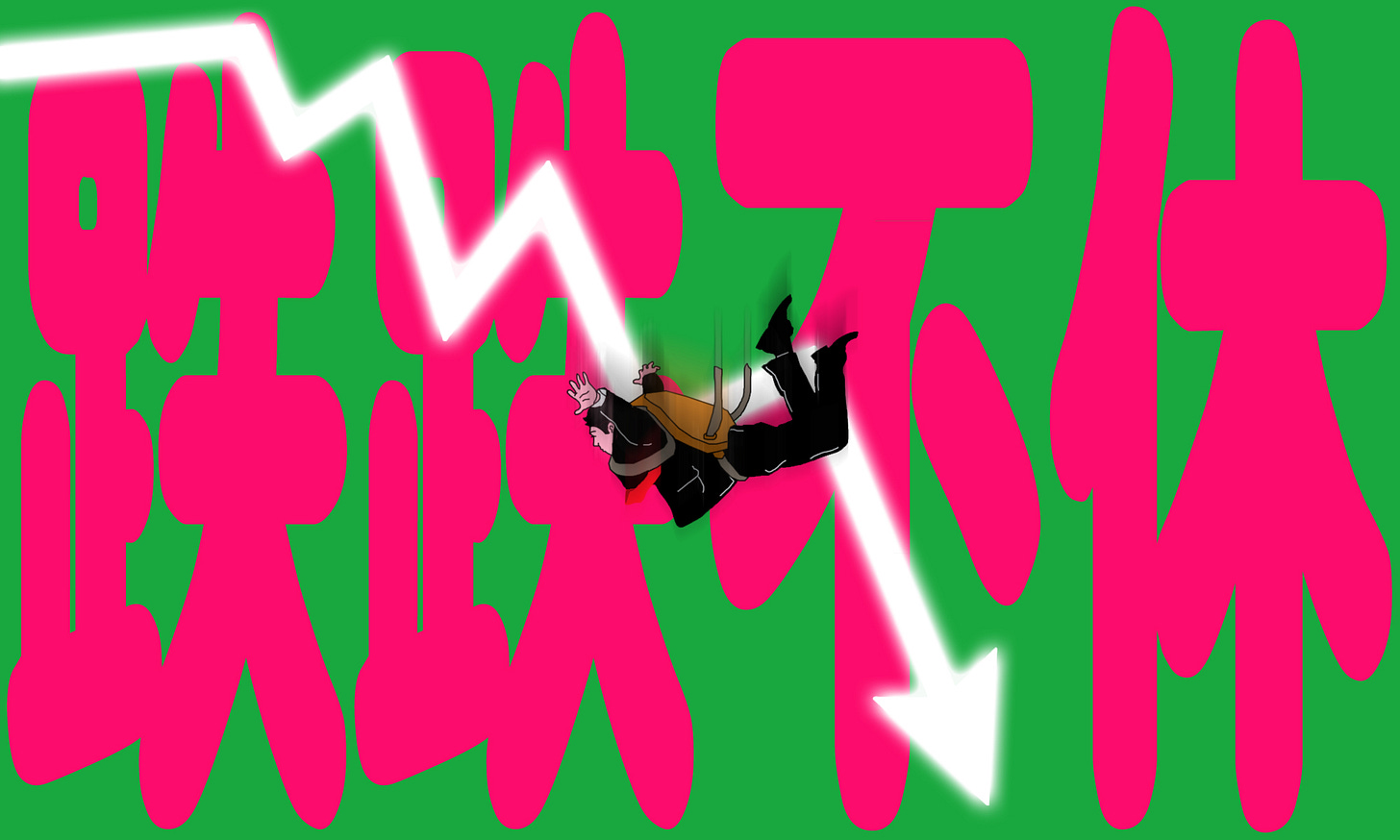"In continuous free fall" — Phrase of the Week #99
The stock markets are falling, concerned investors are chattering
Our Phrase of the Week is: In continuous free fall (跌跌不休 diēdiē bùxiū).
The context
China's stock markets have suffered badly since the start of 2024.
The Shanghai Composite Index has fallen by 8.2% since the start of the year.
But this doesn’t tell the full story, with underlying losses being much greater, but dampened by gains of large-cap blue-chip stocks, particularly the banks and petrochemical companies, who saw their share prices rise.
PetroChina’s share price is up by 14.7%, large state-owned banks rose on average by 7.3%, and joint-stock banks rose 4% in the first six weeks of 2024.
But this small number of well-performing lage companies hides the bloodbath unfolding with the majority of companies listed on China’s stock markets.
In January alone, the main share indices of the Chinese stock markets all fell considerably. The CSI 1000 Index plummeted by 22.3%, the ChiNext Index fell by 18%, and the CSI 500 Index came down 16%.
In addition, the BSE 50 Index fell by 28.6%, and the Science and Technology Innovation 50 Index by 21%.
These indices represent the performance of around 2,000 listed companies in China. The majority of investors in these stocks are individual investors, or “sanhu” (散户 sǎnhù).
In the weeks up to the New Year holidays, panicked sanhu investors in China were asking questions:
We must do some soul-searching in face of this incoherence: Why is the stock market in continuous free fall, while GDP growth in China is over 5%? Can ordinary people still share the fruits of economic development by investing in the stock market?
面对这种反差,难免会发出灵魂拷问——为什么我们的经济增速高达5%以上,股市却只能跌跌不休呢?普通民众还能够从股市分享经济发展的成果吗?
Miànduì zhèzhǒng fǎnchā, nánmiǎn huì fāchū línghún kǎowèn——wèishénme wǒmen de jīngjì zēngsù gāodá 5% yǐshàng, gǔshì què zhǐnéng diēdiē bùxiū ne? Pǔtōng mínzhòng háinénggòu cóng gǔshì fēnxiǎng jīngjì fāzhǎn de chéngguǒ ma?
And with that, we have our Phrase of the Week!
What it means
“In continuous free fall” is a four-character idiom-like phrase.
The direct translation is: “fall fall” (跌跌 diēdiē), “not stop”, or “not rest” (不休 bùxiū).
It’s an adaptation and pun on the idiom, “to chatter unstoppably” (喋喋不休 diédié bùxiū).
The two four-character phrases sound similar with one slight difference: dié 喋 (to chatter), in a second tone, is replaced by diē 跌 (to fall), which is a first tone sound.
“To chatter unstoppably” is an idiom with ancient origins. It is first found in a passage in the Book of Han (汉书 hànshū), which is a history of China through the rise and fall of the Han empire from its first emperor in 206 BCE to the fall of its last, Wáng Mǎng 王莽 in 23 CE, a key political figure at the end of the Western Han (西汉 xīhàn).
To be in “continuous free fall,” however, is not an ancient idiom. It’s a modern phrase used in the context of the stock markets.
The origin of this modern phrase is unknown, but it was probably first coined on social media. It was notably used by YiCai (第一财经), a respected Chinese media outlet, in November 2011 to describe the then precipitous fall of Chinese stocks at that time.
Since then it's become used to describe the “free fall” of stock markets, due to the characters for “fall” and “chatter” sounding similar.
In Chinese, repeating a character is a way to show emphasis. So this idiom captures the sentiment of investors in China’s stock markets right now: watching stocks, and their investments, falling unstoppably.
Andrew Methven is the author of Slow Chinese 每周漫闻, a resource to help learners of Chinese maintain and improve their language skills, and keep on top of the latest language trends in China. Read more.



